“5 Powerful Reasons Gandhi Jayanti Promotes Peace and Non-Violence in Society”
All About Gandhi Jayanti / International Day of Non-Violence
Gandhi Jayanti, celebrated on October 2nd, marks the birth anniversary of Mahatma Gandhi, one of the most influential leaders in modern history. This day is also observed as the International Day of Non-Violence, a day dedicated to promoting the principles of peace, tolerance, and non-violence. Mahatma Gandhi’s philosophy of non-violence, or ahimsa, guided India’s struggle for independence and continues to inspire movements for justice and equality worldwide.
The day serves as a reminder of Gandhi’s extraordinary leadership and his commitment to the idea that peaceful means can achieve social and political change. It is a time for individuals and communities to reflect on the power of non-violence and the importance of resolving conflicts without resorting to aggression or force.
The History of Gandhi Jayanti / International Day of Non-Violence
Gandhi Jayanti is celebrated in India to honor the life and legacy of Mahatma Gandhi, who was born on October 2, 1869, in Porbandar, Gujarat. Gandhi is widely recognized for leading India’s non-violent independence movement against British colonial rule, and his principles of non-violence, truth, and self-reliance have had a profound impact on global peace movements.
In 2007, the United Nations declared October 2nd as the International Day of Non-Violence, in recognition of Gandhi’s commitment to peace and his influence on leaders such as Martin Luther King Jr., Nelson Mandela, and César Chávez. The day encourages individuals, organizations, and governments to commit to a life of non-violence and peaceful conflict resolution.
Why Gandhi Jayanti / International Day of Non-Violence Is Significant
- Honors Gandhi’s Legacy: Gandhi Jayanti is an occasion to celebrate the life of Mahatma Gandhi and reflect on his contributions to peace, justice, and freedom.
- Promotes Non-Violence: This day advocates for ahimsa—non-violence in thought, word, and deed—as a means to create a more just and peaceful world.
- Encourages Social Change: Gandhi’s philosophy emphasized that change could be achieved through peaceful protests and civil disobedience. Gandhi Jayanti reminds us that social change can be pursued without violence.
- Fosters Tolerance and Unity: The observance encourages people to embrace tolerance and understanding, fostering harmony within diverse communities.
- Raises Awareness of Global Peace Issues: As the International Day of Non-Violence, it draws attention to ongoing global issues of war, injustice, and inequality, urging collective action for peace.
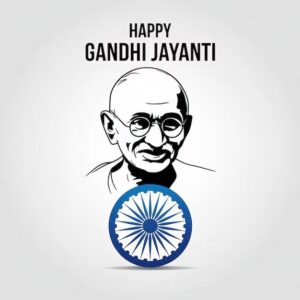
Daily Life Impacts of Gandhi Jayanti / International Day of Non-Violence
Gandhi Jayanti impacts daily life in several important ways:
- Promotes Peaceful Conflict Resolution: The observance encourages people to seek peaceful solutions to personal and societal conflicts, fostering harmony in relationships, communities, and nations.
- Encourages Reflection and Self-Improvement: On this day, individuals are inspired to reflect on their own behavior, striving to embody Gandhi’s principles of kindness, respect, and compassion.
- Inspires Global Movements: Gandhi’s non-violent approach continues to inspire global movements for human rights, environmental justice, and social equality, demonstrating the universal relevance of his teachings.
- Community Activities: Schools, universities, and community organizations often organize peace walks, discussions, and exhibitions to promote non-violence, which engages individuals in meaningful conversations about tolerance and peace.
- Supports Global Peace Initiatives: Governments and organizations around the world recognize the significance of this day, organizing events and campaigns that promote international peace and conflict resolution.
Important Points About Gandhi Jayanti / International Day of Non-Violence
- Date: Gandhi Jayanti is observed on October 2nd each year, honoring the birth of Mahatma Gandhi and promoting the ideals of non-violence.
- International Significance: In 2007, the United Nations declared October 2nd as the International Day of Non-Violence, reinforcing Gandhi’s role as a global advocate for peace.
- Core Message: Gandhi Jayanti promotes the values of peace, tolerance, equality, and non-violence as essential tools for creating a better world.
- Global Participation: The observance is recognized worldwide, with individuals, communities, and organizations participating in events, discussions, and activities that promote peace.
- Theme: Themes often focus on current global issues like conflict resolution, disarmament, and social justice, encouraging people to act for change in their communities and beyond.
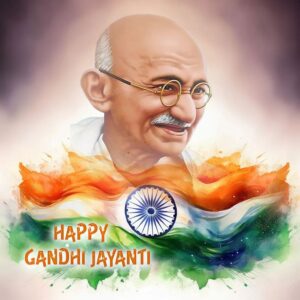
FAQs About Gandhi Jayanti / International Day of Non-Violence
1. Why is Gandhi Jayanti celebrated?
Gandhi Jayanti celebrates the birth of Mahatma Gandhi, who led India’s non-violent struggle for independence. The day also honors his philosophy of ahimsa, or non-violence, which remains a powerful force for change worldwide.
2. What is the significance of the International Day of Non-Violence?
The International Day of Non-Violence is an opportunity to reflect on the importance of non-violent methods for conflict resolution and social change. It serves as a reminder that peace is a viable and powerful tool for creating a more just and equitable world.
3. How is Gandhi Jayanti celebrated?
In India, Gandhi Jayanti is marked by ceremonies, prayers, and community events. A major observance takes place at the Raj Ghat in Delhi, where the Prime Minister of India pays tribute to Gandhi’s memorial. In other parts of the world, the day is celebrated with discussions, peace walks, and educational events focused on non-violence.
4. How does Mahatma Gandhi’s philosophy of non-violence influence modern society?
Gandhi’s philosophy continues to inspire leaders and movements advocating for human rights, justice, and peace worldwide. His ideas influenced figures such as Martin Luther King Jr., Nelson Mandela, and Aung San Suu Kyi, who employed non-violent resistance in their respective struggles.
How to Observe Gandhi Jayanti / International Day of Non-Violence
- Participate in Peaceful Activities: Attend local peace rallies, discussions, or peace walks to honor Gandhi’s commitment to non-violence.
- Reflect on Non-Violence: Use the day to reflect on how you can incorporate non-violence in your daily life—whether through actions, words, or thoughts.
- Engage in Education and Awareness: Take part in educational programs, workshops, or films about Mahatma Gandhi’s life and his approach to non-violence.
- Spread Messages of Peace: Share inspiring quotes from Gandhi or participate in online campaigns promoting peace, tolerance, and equality.
- Support Non-Violent Movements: Support organizations or initiatives that work for peace, justice, and human rights globally.
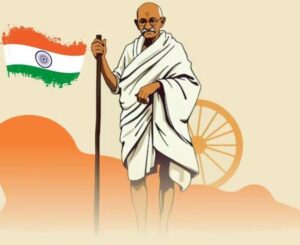
Why Gandhi Jayanti / International Day of Non-Violence Is Important to Society
- Promotes Global Peace: The day reinforces the need for non-violence as the foundation of peace, helping to create a world where dialogue and understanding replace conflict and aggression.
- Encourages Personal Growth: Gandhi’s teachings encourage individuals to cultivate qualities like empathy, tolerance, and humility in their daily lives, which ultimately contribute to stronger, more compassionate societies.
- Empowers Social Movements: The day empowers movements that fight against oppression, injustice, and inequality, reinforcing the idea that peaceful resistance can bring about significant social change.
- Fosters Unity: Gandhi Jayanti brings people from different backgrounds together, uniting them through shared values of peace and social justice.
Facts About Gandhi Jayanti / International Day of Non-Violence
- Global observance: Gandhi Jayanti is celebrated not only in India but also around the world, with communities in various countries organizing events to honor Gandhi’s legacy.
- Gandhi’s Birthplace: Mahatma Gandhi was born in Porbandar, Gujarat, on October 2, 1869.
- Gandhi’s Influence: Gandhi’s philosophy of non-violence influenced leaders like Martin Luther King Jr., Nelson Mandela, and Aung San Suu Kyi in their own struggles for peace and equality.
- UN Recognition: The United Nations officially recognized October 2nd as the International Day of Non-Violence in 2007 to promote the message of peace globally.

Wishing for Peace on Gandhi Jayanti / International Day of Non-Violence
On this special day, we reflect on the wisdom of Mahatma Gandhi and commit ourselves to the pursuit of peace and non-violence in our lives and communities. Let’s embrace the principles of ahimsa, practice tolerance, and work together for a more just and peaceful world. Happy Gandhi Jayanti and International Day of Non-Violence to all!
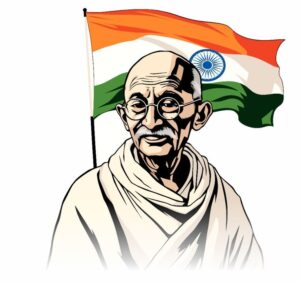
This article delves into the significance of Gandhi Jayanti and the International Day of Non-Violence, emphasizing how Gandhi’s teachings continue to shape societies and inspire movements for global peace. Let’s honor his legacy by promoting non-violence in every aspect of our lives.
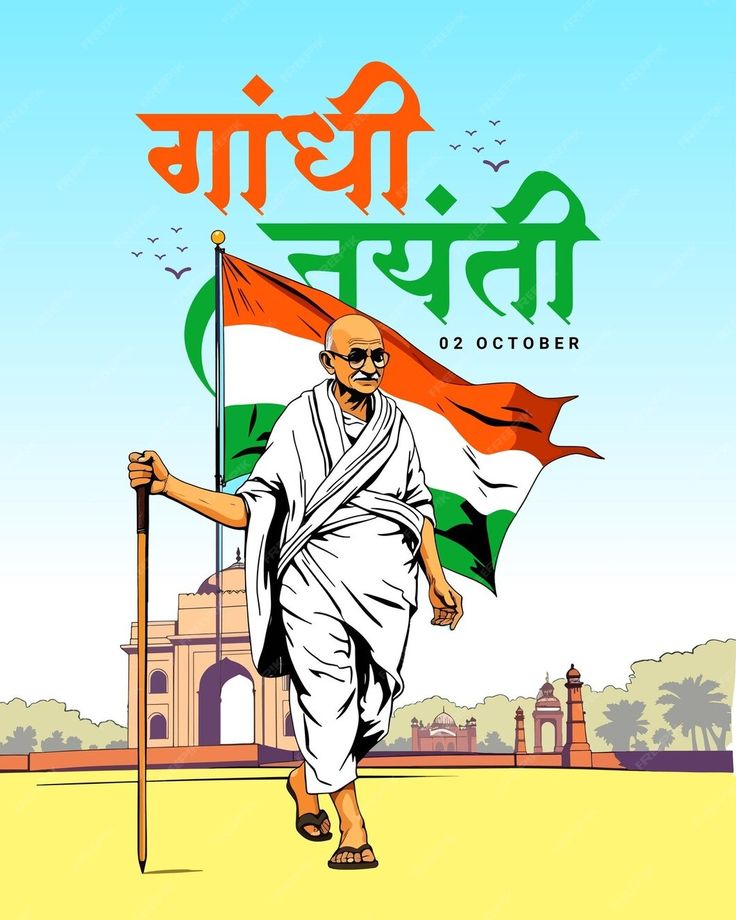










I saw a lot of website but I conceive this one has got something special in it in it